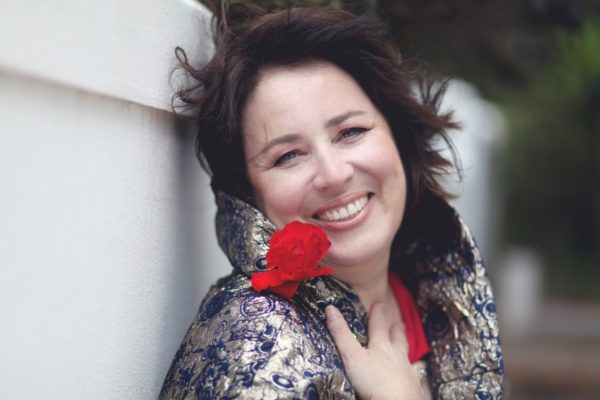
Most of the people who work behind the scenes to hold up literary institutions mostly go unacknowledged in public, their work taken for granted while the writer picks up accolades. High on this list—and it is a very long list that includes publicity assistants, journalists, bloggers, booksellers, and in cases every other professional who is not the writer—are editors. Without editors, the work in most cases would not be the same, would not be as good. In the African literary scene, Short Story Day Africa is the most important institution for short fiction, and one of its cornerstones is Helen Moffett, who has edited and mentored editing fellows on its last three anthologies: Migrations (2017), ID (2018), and the forthcoming Hotel Africa (2019).
Moffett has worked with some of the most acclaimed writers in the continent, including Zakes Mda, Petina Gappah, Lauren Beukes, Ivan Vladislavic, Thando Mgqolozana, Diane Awerbuck, Gabeba Baderoon, Nadia Davids, and Jacqui L’Ange. An author herself, she has released two collections of poetry: Strange Fruit (Modjaji Books, 2009) and Prunings (uHlanga, 2016), which co-won the South African Literary Award for Poetry in 2017; and co-written, with Sarah Lotz and Paige Nick under the nom de plume Helena S. Paige, a choose-your-own-erotic-adventure trilogy titled A Girl Walks In and comprising A Girl Walks Into a Bar, A Girl Walks Into A Wedding, and A Girl Walks Into A Blind Date.
In a post on Short Story Day Africa’s website, she wrote about her experience working with writers.
Editing, it must be said, is not for the faint-hearted. It involves erasing one’s own voice to honour the voice of the story (which itself is not always quite the same thing as the author’s voice). Yet it also involves the courage to stand one’s ground, the diplomacy to negotiate that ground, an ability to see the broader picture, to envisage all the potential ripples spreading out – and in many African countries, this means considering not just literary merits but the political and moral implications of a piece of writing.
In an interaction that by default is hierarchical and “critical”, the editor (especially if she’s a white South African, like me) constantly has to reach for the touchstone of decolonial thinking and practice. Working across the continent means holding my own (often embarrassing) ignorance of the context and history shaping an author’s story in balance with the specific and specialist editing experience and information I can offer. How do we both honour this process? This can only be done by building a relationship, no matter how fleeting. I have to earn the author’s trust, and if I had to boil it down to one principle, it’s taking the author’s words absolutely seriously. No indifferent editor is a good editor. You have to care about the story almost as much as its creator does.
This sounds all very serious. I’m writing this today, as icy winds tug at my doors and the sky darkens, to tell you that editing – and especially editing the SSDA anthologies – is also fun. Huge fun. So much fun, you can’t imagine. That fleeting relationship with your author might be brief, but it’s often deep and intense. It becomes playful and serious. There is pushback and feelings get hurt. It involves coaxing and laughter and amazing trust and mutual respect. The magic is that these interactions are with people you have never met, and may never meet. When that mutual energy crackles across the vastness and multiplicity of the African continent, it’s truly special.
The first time Bongani Kona and I ever worked on a story by the dazzlingly talented Tochukwu Okafor (for the Migrations SSDA anthology), he wrote of the “pleasant horror” with which he opened the file to see a sea of red cyber-ink. (The following year, he was the winner for his story in the ID anthology, and now he’s shortlisted for the Caine Prize, and we are so thrilled for him, we’re floating like balloons.) So sometimes these short and intense relationships stretch ahead into the future, and our paths recross in interesting and constructive ways. We write references for fellowships and Creative Writing MA programmes, for writer’s residencies, jobs in publishing – and celebrate when writers get these. We’re asked for advice, and we’re given advice. We see authors we’ve published, sometimes for the first time, go on to light up the sky.
Read the full piece on Short Story Day Africa’s website.


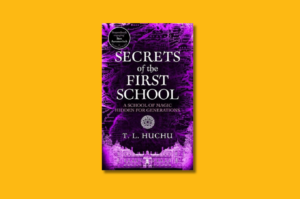
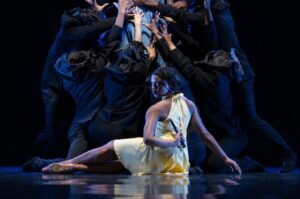

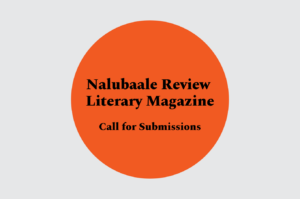
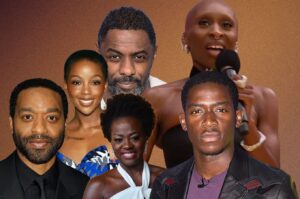


COMMENTS -
Reader Interactions